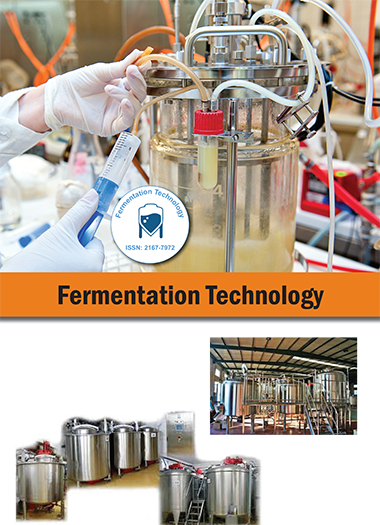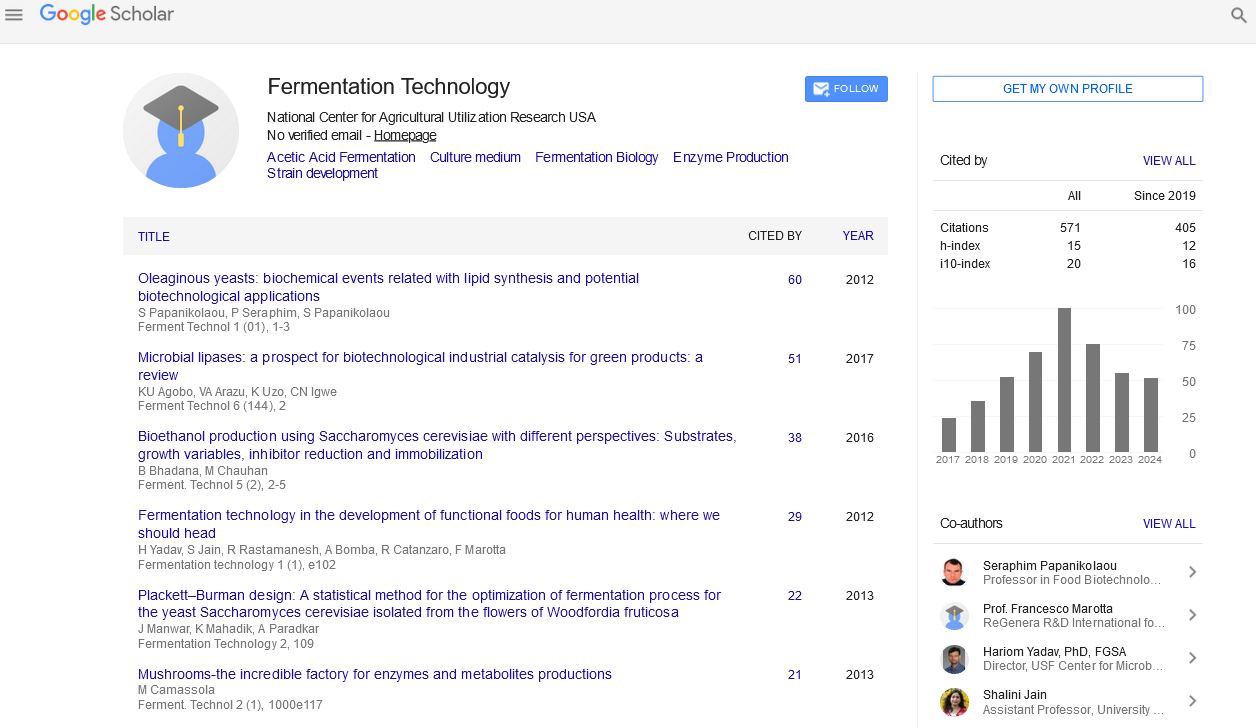Indexed In
- Open J Gate
- Genamics JournalSeek
- Access to Global Online Research in Agriculture (AGORA)
- RefSeek
- Hamdard University
- EBSCO A-Z
- OCLC- WorldCat
- Publons
Useful Links
Share This Page
Journal Flyer

Open Access Journals
- Agri and Aquaculture
- Biochemistry
- Bioinformatics & Systems Biology
- Business & Management
- Chemistry
- Clinical Sciences
- Engineering
- Food & Nutrition
- General Science
- Genetics & Molecular Biology
- Immunology & Microbiology
- Medical Sciences
- Neuroscience & Psychology
- Nursing & Health Care
- Pharmaceutical Sciences
Lactic acid bacteria from fermented whey as a biocontrol tool against phytopathogenic microorganisms
World Congress on Beneficial Microbes: Food, Pharma, Aqua & Beverages Industry
August 25-27, 2015 Valencia, Spain
Pablo Caballero Jimenez, Miguel Parez Castro, Bruno Rodriguez Morgado and Juan Parrado Rubio
Universidad de Sevilla, Spain
Posters-Accepted Abstracts: Ferment Technol
Abstract:
Biological control is a bioeffector-method that uses organisms to control populations of other organisms. This method is widely used to prevent pests, diseases and weeds proving to be a viable alternative to avoid using antibiotics and pesticides in animal feed and crops. Lactic acid bacteria (LAB) have been identified as potencial microorganisms in the field of biocontrol. The aim of this work is identifing LAB present in whey, a byproduct generated during cheese manufacturing process, and studying their role in whey biocontrol activity against phytopathogenic microorganisms. A morphological identification by classic techniques and gene sequencing has been made in order to achieve microbiological characterization of whey from an individual cheese company. A total of 6 species of microorganisms have been identified: Pichia kudriavzevii, Lactobacillus rhamnosus, Lactobacillus fermentum, Lactobacillus helveticus, Lactobacillus zeae and Lactobacillus hilgardii. Biocontrol activity of those identified microorganisms has been tested against different phytopathogenic bacteria and fungus. All lactobacillus identified species showed activity against different bacteria tested. On the other hand only Pichia kudriavzevii and some identified Lactobacillus showed activity against fungus tested. It should be noted that whey biocontrol capability is likely to be related to bacterial activity instead of being due to their excreted metabolites during the fermentation process. This statement arises from the different response against microorganisms tested between both microfiltered and unfiltered whey: While the first did not show any biocontrol activity, the second one did. According to this results, we can conclude that whey could be applied to biological control of crops diseases.
Biography :
Pablo Caballero Jimenez is a research student with 2 years experience in whey fermentation processes and lactic acid bacteria microbiology. He is also studying the ozone effect on plants and testing different products with the aim of decreasing the oxidative stress damage; prior to this he worked as a research fellow in a developmental biology group.
Email: pcaballero2@us.es

